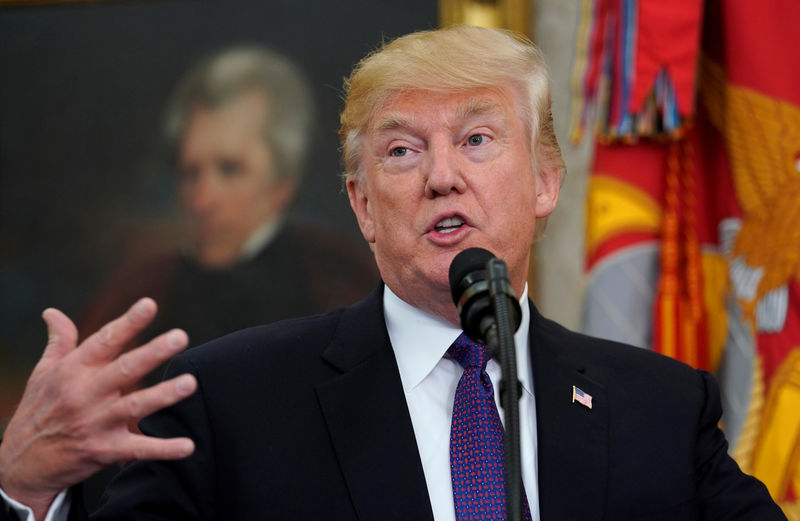By Amanda Becker and Steve Holland
WASHINGTON (Reuters) - Crucial details of the Republican tax plan, including the proposed corporate rate, were in flux late on Tuesday as negotiators from the U.S. Congress rushed to finalize the plan ahead of a self-imposed Wednesday deadline.
Republican tax writers were tinkering with how to best reconcile differences between bills passed by the House of Representatives and the Senate, without exacerbating the deficit impact of legislation that could add as much as $1.5 trillion to the national debt over the next decade, according to independent estimates.
With a meeting of the official bipartisan negotiating committee scheduled for Wednesday, Republicans were still weighing how to best scale back popular individual deductions for mortgage interest and local tax payments, and whether the proposed corporate rate of 20 percent in both bills may rise to 21 percent.
"We're still talking," No. 2 Senate Republican John Cornyn said of a possible 21 percent corporate rate.
Both the Senate and House bills proposed reducing the corporate tax rate to 20 percent from the current 35 percent, eliminating or scaling back some taxes paid only by rich Americans and offering a mixed bag of cuts to other individuals and families, some of which would be short term.
Republican Senator Orrin Hatch, head of the Senate tax-writing committee and one of the negotiators, told reporters in reference to the corporate tax rate, "I hesitate to give any figure at this point because it's still being debated."
Analysts have said that a 1 percentage point change in the corporate rate equals about $100 billion in revenue over a decade. Shifting it even slightly could help negotiators who are attempting to keep the bill within preset budget parameters.
Congressional researchers have estimated the tax plans, as written, would add $1.5 trillion to the $20 trillion national debt over 10 years, before any projected positive effects on the economy, or $1 trillion after such effects.
President Donald Trump wants to sign a tax bill by year's end, potentially marking the Republicans' first major legislative victory since Trump's victory gave the party control of the White House as well as both chambers of Congress.
Trump is scheduled to host Republican tax negotiators at the White House for lunch on Wednesday and to deliver a speech laying out his closing argument for the legislation alongside five middle-class families who would benefit, senior administration officials told reporters on Tuesday.
Trump is expected to counter claims that the tax plan largely benefits corporations and the wealthy by highlighting how it would also cut rates for lower- and middle-income taxpayers, who could see additional benefits such as higher wages following the corporate rate cut, the officials said.
Independent government analyses by the nonpartisan Joint Committee on Taxation, which assists congressional tax writers, and the Congressional Budget Office, which examines the budget impact of legislation, both concluded that wealthier taxpayers would disproportionately benefit from the Republican proposals.
When asked who stands to benefit most from Republican tax legislation, more than half of American adults selected either the wealthy or large U.S. corporations, according to a Reuters/Ipsos poll released on Monday.
Senator Susan Collins, a key moderate Republican whose support was critical to passage of the Senate bill but who has said she will need to review the final package before casting another vote, was critical on Tuesday about talks to cut the top individual tax rate.
"There has been a lot of discussion" about lowering the top individual rate to 37 percent, and "having the corporate rate not be as low," Collins said.
The House tax plan would maintain the top individual tax rate paid by the wealthy at 39.6 percent. The Senate plan would cut it to 38.5 percent.

"I don't think lowering the top rate is a good idea," Collins told reporters.